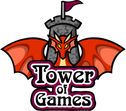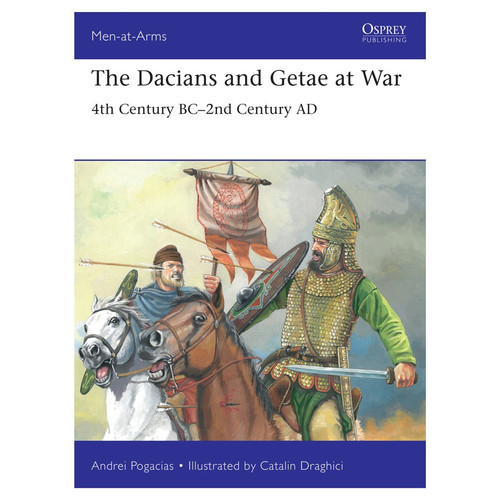This intriguing book describes the Romans formidably warlike enemies in modern Romania and Bulgaria their most illustrated opponents, thanks to friezes on Trajans Column and carvings on Trajans Adamklissi monument.
Formidable warriors, able to field tens of thousands of infantry and cavalry and led by a military aristocracy, the Dacians and Getae presented a real threat to Romes north-eastern frontier. They inflicted several defeats on Rome, crossing the Danube to invade the province of Moesia, and later stubbornly resisting counter-invasions from their strong mountain fortresses.
Historians believe that the Dacians and Getae were essentially the same group of tribes during successive periods, related to Thracian tribes from territory south of the Carpathian Mountains, but their exact relationship in place and time is a subject for debate. Those called the Getae by ancient Greek sources were actively expanding by at least the 4th century BC; some enlisted as mercenaries in Roman armies during the 1st century BC, and others later clashed with the army of Augustus, fighting alongside the Sarmatians. The people whom the Romans called the Dacians are best known from wars against the emperors Domitian in AD 8589 and Trajan in 101106. At their peak, the Dacians and Getae defeated neighbouring peoples stretching from modern Slovakia to southern Ukraine and it is believed that the effectiveness of their weapons caused modifications in Roman infantry armour.
Although most direct ancient sources have been lost to us, enough references remain to reconstruct a picture of their society and culture. Using previously unseen photos of archaeological finds with colour illustrations showing the appearance and weaponry of their warrior kings, noblemen, infantry and cavalry, this detailed book draws upon the latest literary and archaeological research to provide a complete account of these fascinating fighters.
48 page softcover
Author: Andrei Pogacias
Illustrator: Catalin Draghici
Formidable warriors, able to field tens of thousands of infantry and cavalry and led by a military aristocracy, the Dacians and Getae presented a real threat to Romes north-eastern frontier. They inflicted several defeats on Rome, crossing the Danube to invade the province of Moesia, and later stubbornly resisting counter-invasions from their strong mountain fortresses.
Historians believe that the Dacians and Getae were essentially the same group of tribes during successive periods, related to Thracian tribes from territory south of the Carpathian Mountains, but their exact relationship in place and time is a subject for debate. Those called the Getae by ancient Greek sources were actively expanding by at least the 4th century BC; some enlisted as mercenaries in Roman armies during the 1st century BC, and others later clashed with the army of Augustus, fighting alongside the Sarmatians. The people whom the Romans called the Dacians are best known from wars against the emperors Domitian in AD 8589 and Trajan in 101106. At their peak, the Dacians and Getae defeated neighbouring peoples stretching from modern Slovakia to southern Ukraine and it is believed that the effectiveness of their weapons caused modifications in Roman infantry armour.
Although most direct ancient sources have been lost to us, enough references remain to reconstruct a picture of their society and culture. Using previously unseen photos of archaeological finds with colour illustrations showing the appearance and weaponry of their warrior kings, noblemen, infantry and cavalry, this detailed book draws upon the latest literary and archaeological research to provide a complete account of these fascinating fighters.
48 page softcover
Author: Andrei Pogacias
Illustrator: Catalin Draghici


